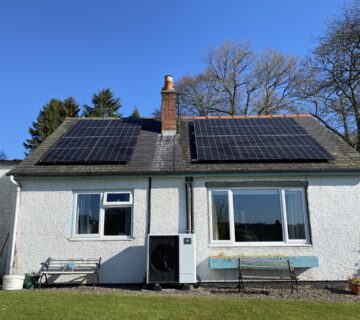By: John C, Operations Manager BRB Ltd.
In recent times, there has been an increasing number of horror stories circulating about Air Source Heat Pumps (ASHPs) being installed onto existing heating systems without proper consideration for the design of the new system.This concerning trend has raised several valid points that need to be addressed to ensure customer satisfaction, efficiency, and the reputation of ASHP technology. In this post, we will delve into these concerns and shed light on the potential consequences of such practices.1. Undersized Pipe Work and RadiatorsOne of the primary concerns with hasty ASHP installations is the potential under sizing of pipe work and radiators. Proper heat transfer relies on a well-designed system that matches the requirements of the ASHP.If the existing components are not properly sized, it can result in inefficient heat distribution, reduced comfort, and higher energy bills. It is crucial for professionals to carefully assess the suitability of the existing infrastructure before proceeding with an ASHP installation.2. Undersized Heat PumpsAnother critical factor to consider is the sizing of the heat pump itself.An undersized ASHP may struggle to meet the heating demands of a property, particularly during colder spells. This can lead to discomfort, inadequate warmth, and increased energy consumption as the system works harder to compensate. Proper calculations based on the property’s heat loss and heating needs are vital to ensure the ASHP is appropriately sized, maximizing efficiency and maintaining customer satisfaction.3. Challenges during Prolonged Cold SpellsOne of the main worries customers may have is how an ASHP will perform during extended periods of extremely cold weather.While modern ASHPs have improved their cold climate capabilities, it is essential to set realistic expectations. If the system is not correctly designed or sized, it may struggle to cope with the increased heating demands during severe cold spells. Adequate insulation, backup heating options, and thorough system design considerations are crucial to mitigate potential challenges during harsh winters.4. Reputation and SetbacksThe actions of unprofessional installers, often referred to as “cowboys,” can significantly impact the reputation of ASHP technology. Poorly designed and installed systems not only cause immediate dissatisfaction but also set back the progress made in promoting sustainable heating solutions. It is vital for the industry as a whole to ensure that only reputable and knowledgeable professionals undertake ASHP installations. By doing so, we can maintain customer trust and the positive trajectory of this eco-friendly technology.
In ConclusionAddressing concerns surrounding ASHP installations is vital to ensure customer satisfaction, energy efficiency, and the reputation of this innovative heating solution.Undersized components, both in terms of pipe work and heat pumps, as well as the challenges faced during prolonged cold spells, must be taken into account during the design and installation process. By prioritising professionalism and expertise, we can safeguard the industry’s progress and establish ASHPs as reliable, sustainable, and efficient heating options for the future.
If You’re Thinking About Upgrading To An Air Source Heat Pump, Click Here To Learn More.





